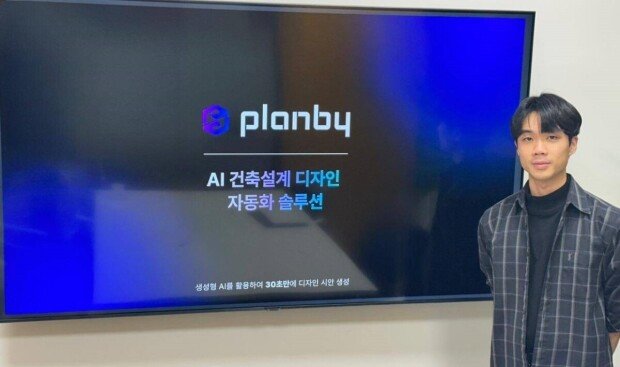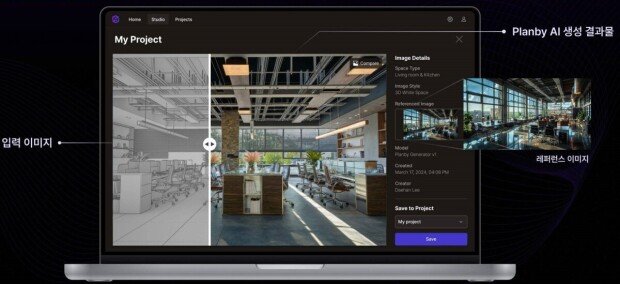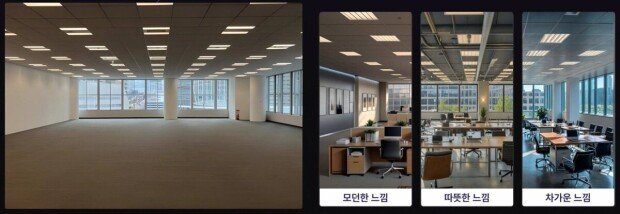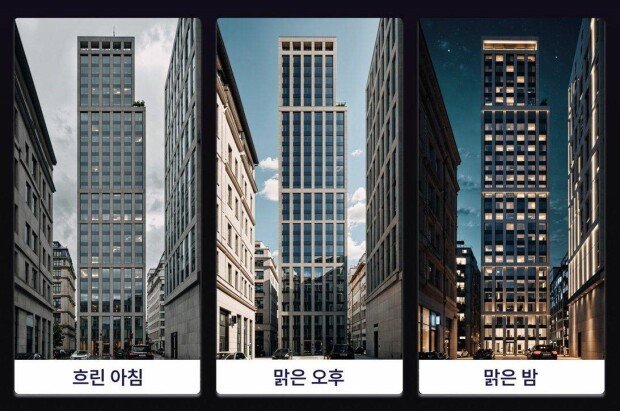Automating Architectural Design with AI: 'Planby Technologies'
Automating Architectural Design with AI: 'Planby Technologies'
Posted December. 20, 2024 11:07,
Updated April. 18, 2025 16:42
3D spatial design is essential for proposing design concepts in architectural construction. However, securing design drafts still involves significant time and cost, as it requires the installation of specialized tools, and complex modeling and rendering processes. This often forces designers to rely on low-quality drafts, which can be an inconvenience. Planby Technologies has addressed these challenges by developing an AI-powered architectural design automation solution using generative AI to rapidly create 3D spatial design drafts. We spoke with Hyun-seop Roh, CEO of Planby Technologies, to get a detailed introduction to their technology.

Development of an Architectural Design Automation Solution Using Generative AI: 'Planby Technologies'
Planby Technologies has developed an architectural design automation solution using generative AI, which enables the automatic creation of architectural design drafts. This technology generates multiple design options with various tones and styles during the planning and design phases, providing designers and clients with diverse choices.

Roh explained, "Our solution generates design drafts that accurately maintain the layouts of the input images, such as walls, floors, and ceilings, and produces images to scale. This allows the drafts to be directly applied to standard architectural domains. Previously, creating custom designs for a specific space using conventional computer tools would take three to five days. Our solution uses generative AI to present design drafts within one minute, enabling designers and clients to review and discuss designs immediately on-site. This facilitates seamless communication and speeds up the entire design process, ultimately increasing customer satisfaction."

He added, "Our solution, which leverages generative AI, significantly reduces the costs to the architect compared to outsourcing design work or purchasing high-performance GPUs. Beyond simply creating spatial design drafts, it can also simulate surrounding environments and various weather conditions, such as rainy days, clear nights, and cloudy mornings."

Planby Technologies faced several challenges in perfecting its AI-based design automation solution.
Roh explained, "The quality of generative AI determines the output of our solution. Earlier on, generative AI lacked sophistication, resulting in flawed drafts with warped walls and bent ceilings. We addressed these issues through manual corrections and numerous trials and errors. By fixing the
for walls, floors, and ceilings, we ensured the AI-generated drafts could be directly applied to standard architectural domains."

He continued, "Currently, our focus is on enhancing the solution in order to flexibly accommodate different corporate requirements. For example, an office design draft should include furniture placement, whereas a factory layout needs aerial views, green spaces, and parking layouts. Customizing AI outputs for these diverse needs still requires manual intervention. We are working towards semi-automating this customization process through ongoing research and development."
**Expanding into North America with SBA Support: "Aiming to Become a Tool that Provides Insights to Designers"**
Planby Technologies is expanding its market with the support of the Seoul Business Agency (SBA).
Roh shared, "We were selected for SBA's 2024 Global Expansion Program, which meant that we received funding, local acceleration, and connections with investors to establish our presence in North America. SBA also provides mentoring for successful overseas expansion. Thanks to this support, I spent about a month meeting representatives from major North American architectural firms interested in adopting AI. During my sales visits in the U.S., I was sometimes treated as a mere traveling salesman, but my efforts there ultimately led to ongoing contract discussions with U.S. companies."
He added, "Although we are a startup, and were only founded in April 2023, we’ve already secured investments from Silicon Valley-based VCs and KAIST. Recently, we were selected for the Deep Tech TIPS program. Using generative AI, we aim to grow in the traditionally slow-to-adopt architectural sector. Ultimately, we want to be recognized as a tool that deeply integrates into architectural domains, to give architects valuable design insights."
by Dong-jin Kim (kdj@itdonga.com)

Hyun-seop Roh, CEO of Planby Technologies
Development of an Architectural Design Automation Solution Using Generative AI: 'Planby Technologies'
Planby Technologies has developed an architectural design automation solution using generative AI, which enables the automatic creation of architectural design drafts. This technology generates multiple design options with various tones and styles during the planning and design phases, providing designers and clients with diverse choices.

The AI-powered architectural design automation solution developed by Planby Technologies
Roh explained, "Our solution generates design drafts that accurately maintain the layouts of the input images, such as walls, floors, and ceilings, and produces images to scale. This allows the drafts to be directly applied to standard architectural domains. Previously, creating custom designs for a specific space using conventional computer tools would take three to five days. Our solution uses generative AI to present design drafts within one minute, enabling designers and clients to review and discuss designs immediately on-site. This facilitates seamless communication and speeds up the entire design process, ultimately increasing customer satisfaction."

Original image (left) and various design options generated by the AI-powered architectural design automation solution
He added, "Our solution, which leverages generative AI, significantly reduces the costs to the architect compared to outsourcing design work or purchasing high-performance GPUs. Beyond simply creating spatial design drafts, it can also simulate surrounding environments and various weather conditions, such as rainy days, clear nights, and cloudy mornings."

The AI-powered architectural design automation solution presents various weather scenarios as building backdrops
Planby Technologies faced several challenges in perfecting its AI-based design automation solution.
Roh explained, "The quality of generative AI determines the output of our solution. Earlier on, generative AI lacked sophistication, resulting in flawed drafts with warped walls and bent ceilings. We addressed these issues through manual corrections and numerous trials and errors. By fixing the
for walls, floors, and ceilings, we ensured the AI-generated drafts could be directly applied to standard architectural domains."

Hyun-seop Roh, CEO of Planby Technologies
He continued, "Currently, our focus is on enhancing the solution in order to flexibly accommodate different corporate requirements. For example, an office design draft should include furniture placement, whereas a factory layout needs aerial views, green spaces, and parking layouts. Customizing AI outputs for these diverse needs still requires manual intervention. We are working towards semi-automating this customization process through ongoing research and development."
**Expanding into North America with SBA Support: "Aiming to Become a Tool that Provides Insights to Designers"**
Planby Technologies is expanding its market with the support of the Seoul Business Agency (SBA).
Roh shared, "We were selected for SBA's 2024 Global Expansion Program, which meant that we received funding, local acceleration, and connections with investors to establish our presence in North America. SBA also provides mentoring for successful overseas expansion. Thanks to this support, I spent about a month meeting representatives from major North American architectural firms interested in adopting AI. During my sales visits in the U.S., I was sometimes treated as a mere traveling salesman, but my efforts there ultimately led to ongoing contract discussions with U.S. companies."
He added, "Although we are a startup, and were only founded in April 2023, we’ve already secured investments from Silicon Valley-based VCs and KAIST. Recently, we were selected for the Deep Tech TIPS program. Using generative AI, we aim to grow in the traditionally slow-to-adopt architectural sector. Ultimately, we want to be recognized as a tool that deeply integrates into architectural domains, to give architects valuable design insights."
by Dong-jin Kim (kdj@itdonga.com)







